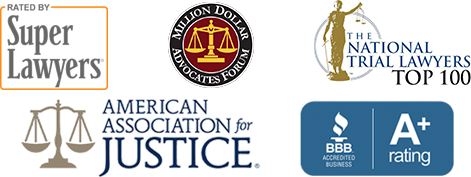Despite the fact that most employers are familiar with employment laws, including those opposing discrimination, trouble still comes to the forefront from time to time. Discrimination in the workplace remains an issue that can impact any worker in any state. Knowing what is considered discrimination, as well as what the laws are, can help you navigate discrimination.
What Is Considered Illegal in the Workplace?
It is not against the law for your boss to act in an unfriendly, rude manner. It isn’t even against the law for your company to provide a poor work environment. What is a violation of the law, however, is discrimination against an applicant or worker based on certain criteria protected by the Equal Employment Opportunity Commission (EEOC).
If you are disabled, for example, your employer is expected to provide reasonable accommodation. This is defined by the U.S. Office of Personnel Management as follows:
“Reasonable accommodation is any change to a job, the work environment, or the way things are usually done that allows an individual with a disability to apply for a job, perform job functions, or enjoy equal access to benefits available to other individuals in the workplace.”
When an employer does not do this, they may be held liable. These laws apply to all employers, including private, state and federal, and labor committees. If you are not sure if your employer’s behaviors are discrimination, it can be helpful to reach out to a lawyer today. Depending on the details, you may have legal options available.
What Is Considered Workplace Discrimination?
Discrimination is the unfair treatment of employees, or potential employees, based on certain protected categories, including disability, race, national origin, gender, handicap, religion, sex, or age. This could include holding back promotions, harassment of employees, inappropriate questions, or retaliation based on these factors.
While discrimination can occur anywhere, workplace discrimination simply implies that the discriminatory behaviors took place either in your place of employment or while obtaining employment. This could include during an interview, training, while working, or even the actions taken to dismiss you from your current position.
What Is Disability Discrimination?
Disability discrimination refers to the behavior of unfair work treatment, or refusal of accommodations, to someone who is covered by the American Disability Act (ADA). This could include both direct or indirect discrimination, such as being openly discriminatory to a disabled employee or indirectly holding back necessary work items. It is also important to note that disability discrimination is not always intentional. Even certain workplace policies or setups can be considered discrimination if they violate disability requirements.
What Are My Options Following Workplace Discrimination?
A victim of workplace discrimination may be in a position to file a lawsuit to receive compensation for: back pay, future lost earnings, emotional distress, and punitive damages.
Getting on the right track often starts with contacting a qualified attorney. Whether you were denied employment, or you were harassed at your current workplace, due to a disability, we encourage you to reach out to a lawyer today to learn your legal options.







